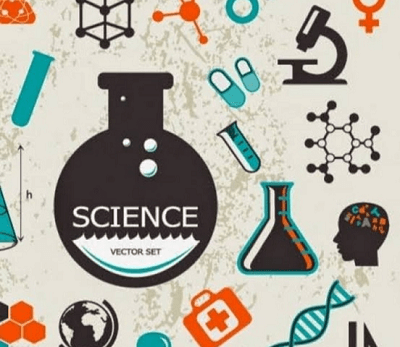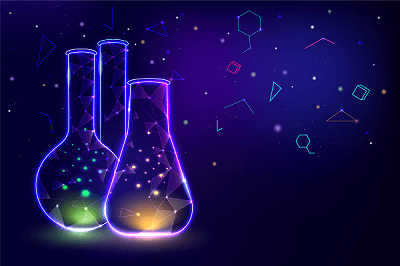Essay On ScienceScience is the detailed study of the natural and physical world's behavior. The investigation is carried out by research, observation, and experimentation. Science is divided into various disciplines. Natural sciences, social sciences, and formal sciences are among them. Subcategories have been created from these main categories. Physics, Chemistry, Biology, Earth Science, and Astronomy are examples of natural sciences; History, Geography, Economics, Political Science, Sociology, Psychology, and anthropology are examples of social sciences; and mathematics, logic, statistics, decision theory, system theory, and computer science are examples of formal sciences. 
Science has made a positive impact on the globe. Several scientific innovations have occurred over time, making human existence more convenient. Several of these innovations have become a part of our daily lives without which we can't fathom living. Scientists all across the world continue to explore and come up with novel ideas regularly, with some of them causing global revolutions. However, as essential as science is, it has also been used to fuel an arms race and destroy the environment due to scientific and technological development, particularly among those in power. Science and religion philosophies have not found common ground. These seemingly opposing notions have caused and continue to cause various disputes in the past. The Utility of ScienceAlmost everything we utilize in our everyday lives is a scientific marvel. Everything, from vehicles to washing machines, mobile phones to microwaves, refrigerators to laptop computers, results from scientific investigation. Here are some examples of how science affects our daily lives: 1. CookingGas stoves routinely used to make meals, are a scientific development, as are microwaves, grillers, and freezers. 2. Medical TreatmentThe growth of technology has made it feasible to treat various diseases and disorders. Thus, science supports healthy living and has led to an increase in life duration. 3. CommunicationMobile phones and internet connections are all scientific innovations that have become essential to our daily lives. These advancements have facilitated communication and brought the globe closer together. 4. Source of EnergyThe discovery of atomic energy paved the path for developing and using many energy sources. Electricity is one of its most important creations, and its influence on our daily lives is well acknowledged. 5. Variety of SeedsThe diversity of meals has also grown. Many fruits and vegetables are now accessible all year round. You do not have to wait for a given season to enjoy a specific meal. Experiments in the realm of science have resulted in this transformation. Science is organised into three primary categories. Natural Sciences, Social Sciences, and Formal Sciences are examples of these. To examine diverse features, these fields are further divided into sub-categories. Here's a closer look at each of these categories and subcategories: The Branches of Science
Natural ScienceThis is the study of natural phenomena, as the name implies. It investigates how the Earth and universe function. Physical Science and Life Science are subcategories of Natural Science.
Social SciencesThis entails researching social patterns and human behaviour. It is further subdivided into several categories. These are some examples:
3. Formal scienceIt is the scientific study of formal systems such as mathematics and logic. It is divided into the following sub-categories:
Concept of Science and ReligionWhile science uses a rational and systematic methodology to generate new ideas and innovations, religion, on the other hand, is entirely dependent on belief and faith. Careful observation, analysis, and experiments are used to arrive at a scientific conclusion, but there is little logic in religion. As a result, their perspectives on things are opposed. Conflict Between Science and ReligionBecause of their opposing viewpoints on some issues, science and religion are frequently regarded at odds. Unfortunately, these confrontations can create social disruption and harm to the innocent. Here are some of the most significant confrontations between religious supporters and believers in scientific approaches. Creation of WorldMany orthodox Christians believe that between 4004 and 8000 BCE, God created the world in six days. On the other hand, cosmologists claim that the universe is around 13.7 billion years old and that the Earth originated approximately 4.5 billion years ago. Earth as the Centre of the UniverseOne of the most well-known conflicts in history. According to the Roman Catholic Church, Earth is the center of the universe. According to them, the Sun, Moon, stars, and other planets rotate around it. The disagreement occurred when Galileo Galilei, a great Italian astronomer and mathematician, established the heliocentric system, in which the Sun is at the center of the solar system and the Earth and other planets orbit around it. Unfortunately, Galileo was found guilty of heresy and sentenced to house imprisonment for the remainder of his life. Solar and Lunar EclipseIraq was the site of one of the first wars. The priests there had persuaded the villagers that the gods' restlessness caused the moon eclipse. These were supposed to be foreboding and designed to annihilate the rulers. The disagreement arose when local astronomers proposed a scientific explanation for the eclipse. While astronomers provide a compelling and rational explanation for solar and lunar eclipses, myths and superstitions regarding the phenomenon persist in many world regions. The Evolution of SpeciesConservative Christians believe that all species of flora and fauna were formed during the six days God created the world, based on the biblical book of Genesis. Biologists, on the other hand, contend that diverse plant and animal species developed over hundreds of millions of years by natural selection mechanisms. Recent Scientific Invention and Discoveries1. Control Over Biomechanical Hand Through Mind Amputee Pierpaolo Petruzziello, an Italian who lost his forearm in a tragic accident, learned to manipulate a biomechanical hand attached to his arm. Electrodes and cables linked his hand to his arm nerves. He was the first to master the technique of making movements with his mind, such as finger wriggling, seizing items, and moving his fist. 2. Global Positioning System The Global Positioning System, sometimes known as GPS, became commercially feasible in 2005. It was integrated into mobile devices and proved to be a blessing for tourists worldwide. It couldn't be easier to find directions when visiting new destinations. 3. Prius - The Self-Driving Car Google launched the self-driving vehicle initiative in 2008, and Toyota quickly followed suit with the Prius. This vehicle lacks a brake pedal, steering wheel, and accelerator. An electric motor drives it and requires no user contact to function. It includes unique software, sensors, and precise digital maps to provide a smooth and safe autonomous experience. 4. Android Android, widely regarded as one of the most critical technologies of the decade, arrived as a revolution and swept away the market formerly dominated by Symbian and Java-powered smartphones. The majority of smartphones now use the Android operating system. It is compatible with millions of apps. 5. Computer Vision Event detection, indexing, object recognition, object position estimation, motion estimates, image restoration, scene reconstruction, learning, and video tracking are all subdomains of computer vision. The field includes methods for processing, analyzing, obtaining, and interpreting pictures in high-dimensional data from the real world to generate symbolic information. 6. Touch Screen Technology The technology of touch screens appears to have taken over the planet. The popularity of touchscreen gadgets is due to their simplicity of use. These gadgets have grown quite popular all around the world. 7. 3D Printing Technique The 3D printing gadget can create many items, such as cookware, accessories, lights, and more. This process, also known as additive manufacturing, generates three-dimensional items of any shape using digital model data from an electronic data source such as an Additive Manufacturing File (AMF). 8. Git Hub Git Hub, founded in 2008, is a version control repository revision control and Internet hosting service that provides services such as bug tracking, task management, feature requests, and sharing codes, apps, and so on. The GitHub platform was created in 2007, and the website went live in 2008. 9. Smartwatches Smartwatches have been available in the market for some time. However, later ones, like those released by Apple, have various extra capabilities and have achieved enormous appeal. These watches have all smartphone functions practically but are smaller and more straightforward to carry and use. 10. Crowd Funding Sites Crowd-funding websites like GoFundMe, Kickstarter, and Indiegogo have been a godsend to creative minds. Inventors, artists, and other creative persons may use these websites to discuss their ideas and obtain the financial assistance they need to implement them. Research ActivityIndia lacks a robust scientific research ecosystem. There is a dire need to foster a culture of research and innovation in the scientific community. Research Capacity in India is developing, and it is necessary to link Research and Development, Academia, and Industry. A Proper Institutional Framework is needed to seed, grow and promote Scientific Research and Development in the Scientific area. Research in India does not have space due to its priorities. India has priorities like hunger, poverty, unemployment, health, climate change inequality. Research Institutions, Universities, and Colleges do not teach the habit of research among the students, and research paper produced by the researcher does not stand at the international level and remain unmatched in quality. Few research institutions are present in India that have done cutting-edge, transformative research, and they are the Indian Space Research Organisation (ISRO), Defence Defence and Research Organisation (DRDO), Indian Council of Medical Research, Indian Council of Agricultural Research (ICAR) All these organizations are autonomous but heavily rely on Government funds. Funds to these governments are erratic, low, and fluctuating. Private participation is lacking, and collaboration is virtually inexistent between the government and the Private sector in the research area. ConclusionScientists all across the world are constantly observing and experimenting with developing new scientific breakthroughs that will make people's lives simpler. They not only keep coming up with fresh ideas, but they also improve on current ones whenever possible. While these innovations have made man's life more straightforward, the environmental, social, and political problems they have brought are not concealed from you.
Next TopicKnowledge is Power Essay
|
 For Videos Join Our Youtube Channel: Join Now
For Videos Join Our Youtube Channel: Join Now
Feedback
- Send your Feedback to [email protected]
Help Others, Please Share









